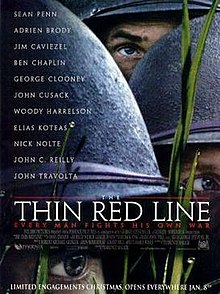Subscribe to:
Post Comments (Atom)
skip to main |
skip to sidebar

Discussion of movies remembered, watched and re-watched.
The goddam movies.
They can ruin you.
I'm not kidding.
(Holden Caulfield)
My Rating System:
**** (masterpiece)
***1/2 (excellent)
*** (good)
**1/2 (fair)
** (major reservations)
*1/2 (bad)
* (awful)
They can ruin you.
I'm not kidding.
(Holden Caulfield)
My Rating System:
**** (masterpiece)
***1/2 (excellent)
*** (good)
**1/2 (fair)
** (major reservations)
*1/2 (bad)
* (awful)
About Me

- Michał Oleszczyk
- Kraków, woj. Małopolskie, Poland
- b. 1982; Film critic and translator; contributor to "RogerEbert.com" and other websites. He wrote the first Polish monograph of Terence Davies. Together with Kuba Mikurda, he published a book-long interview with Guy Maddin. His translation of J. Hoberman and Jonathan Rosenbaum's "Midnight Movies" was published in 2011.





Didn't like it the first time. Sort of appreciated it the second time. Because of BADLANDS and DAYS OF HEAVEN, the mostly excellent reviews, --and the great anticipation after a long hiatus on the part of Malick--, I was willing to give it a second chance. Can't say I like it, but it was an usual kind of film. But then NEW WORLD came next and I simply couldn't sit through it. As for TREE OF LIFE, it should be called TREE HUGGING OF LIFE. What a ridiculous movie.
ReplyDeleteThe cinematography of THIN RED LINE is excellent but is it appropriate for a war film? Maybe, maybe not. It all depends on how one categorizes this movie. Maybe it's not so much a war film as philosophical/spiritual film where war just happens to be the subject. Thus, instead of focusing directly on war itself, it's about how war intrudes into the souls of man and the harmony of nature. Thus, war could be seen as just an element--even if a major one--than the primary subject of this film.
My main problem is with Malick's treatment of characters. It seems as though the only real star is Malick's ego. None of the characters have any real individuality. Instead, they come across as aspects of Malick's inner-conflicted multi-faceted soul. They are shadow puppets of the soul-struggle within Malick's mind... just like most of the characters in Woody Allen's movies are just variations of Allen's neurosis, or better-looking people through whom Allen makes mostly silly statements about life, art, society, etc.
Maybe THIN RED LINE would have worked better as a silent movie.
Thank you for your comment!
ReplyDeleteI personally find Malick's approach to his characters very varied and respectful. I don't think war is merely incidental to the movie -- it's a crucial element of it, even though Malick doesn't follow the time-worn conventions of war movies. I think TTRL is somehow similar to APOCALYPSE NOW in that it takes a highly personal look at war and transforms it into a state of mind, all the while keeping it "real" enough to inspire genuine horror.
The end of your article arrives at the ultimate lens through which this film demands assessment: Christianity. (It's not an amorphous spirituality, or just religion as a generic term, but the very specific combination of grace and redemption that is uniquely at the heart of the Christian faith.) The extent to which critics (including Roger Ebert, who promoted your article) dread this fact is nearly comical by now -- or anyway, inconsistent with the swarm of "spiritual" platitudes. The auteur's P.O.V. is deeply relevant as it's notoriously built upon a singular vision, and no one disputes that Malick is a professing Christian.
ReplyDeleteYour concluding comment, that the film offers something deeper than any organized religion possibly could, is an empty generalization, though. Pitting these two disparate things against each other is expedient and nonsensical.
Hi,
ReplyDeletewhile the link to Christianity is very important in Malick, and you're right to point it out, it's not like Christianity is the soole religion being evoked in LINE (Buddhism is another and some sequences have a pantheistic feel to them). I agree that one could successfuly pursue all those tropes, however I needed to limit myself due to my aim of writing a relatively short piece.